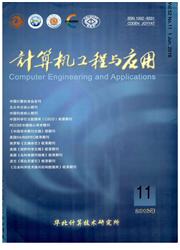

 中文摘要:
中文摘要:
将决策主体的利他偏好行为引入供应链决策模型,建立了批发价格折扣契约下由自利偏好/利他偏好的供应商、零售商组成的二级供应链,即完全自利型供应链、零售商利他型供应链、供应商利他型供应链、完全利他型供应链。通过数理模型推导和数值分析得出:供应商(零售商)更愿意与利他型零售商(供应商)进行合作;零售商的利他偏好行为不能缓减供应链"双重边际效应",供应商利他偏好能缓减却不能消除供应链"双重边际效应",但供应商和零售商的利他行为都有利于增加供应链效用。这些理论能够为供应链决策主体选择合作伙伴类型提供理论支持,并丰富行为供应链的研究内容。
 英文摘要:
英文摘要:
We introduce the altruism behavior into the decision model of two-echelon supply chain,and set the model including one supplier and one retailer of fully selfish preference or altruistic preference under wholesale price contract, i. e. full selfish supply chain, supplier altruistic supply chain, retailer altruistic supply chain and full altruism supply chain. Then, we get some important conclusions by numerical analysis. Firstly, whether the supplier (retailer)is of altruistic preference,he is more willing to cooperate with altruistic retailer(supplier). Secondly, the retailer' s altruistic preference can't alleviate the "double marginal effect" of decentralized supply chain, while the supplier' s altruistic preference can alleviate but can't eliminate the "double marginal effect". Finally,The altruistic preference behavior of both supplier and retailer can improve the overall utility of supply chain. These theories can provide the theory support for the supply chain members choosing partner, and enrich the research content of supply chain behavior.
 同期刊论文项目
同期刊论文项目
 同项目期刊论文
同项目期刊论文
 期刊信息
期刊信息
